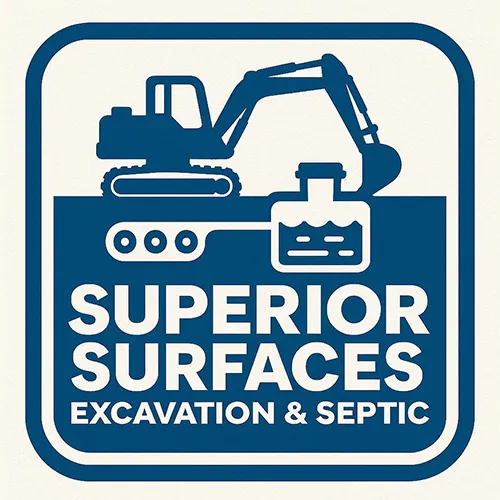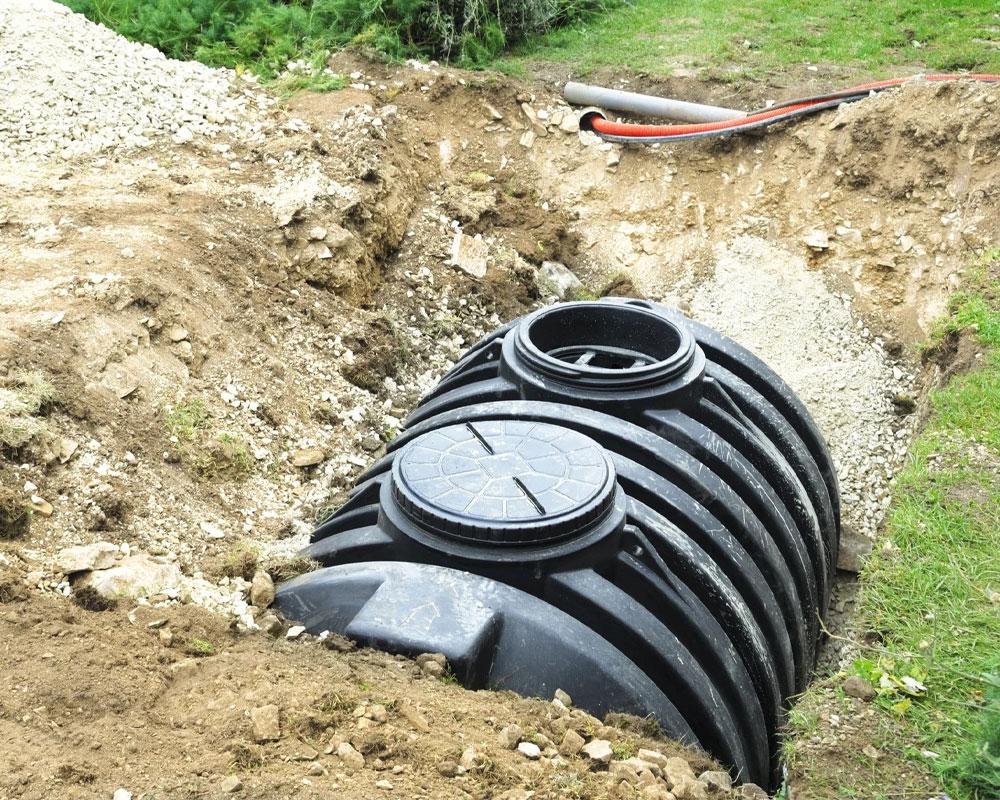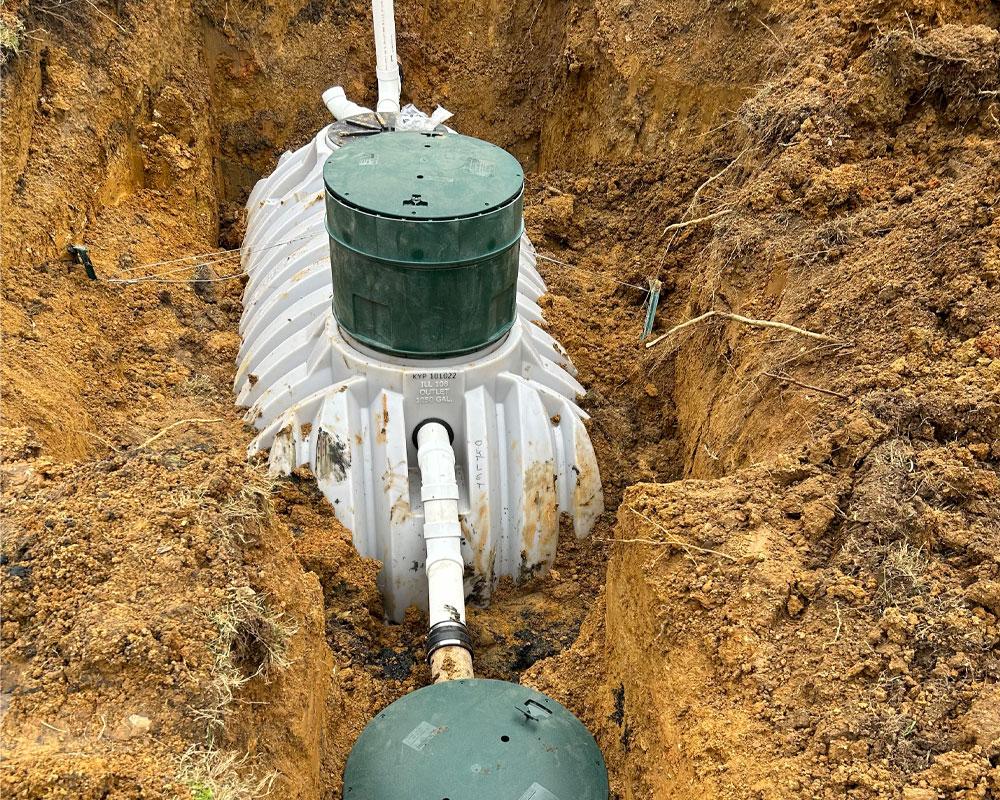
Serving Michigan counties: Macomb, St Clair, Wayne, Oakland, Genesee, and Tuscola Counties
Septic Installation near Macomb County, Michigan
Superior Surfaces LLC is Committed to superior quality and results!

AVOID COSTLY MISTAKES:
Do NOT hire an excavating contractor without first reading our free guide:
The ULTIMATE Excavation & Septic "Success Guide."

Septic Installation near Macomb County, Michigan: Your straight-talk guide
If you are planning a new build or replacing a failed system, you probably searched for “Septic installation near Macomb County” because you want answers that are complete, practical, and local. This page delivers exactly that. We will explain what septic installation includes, why hiring nearby pros saves money and stress, and the process to move from an idea to an approved, working system in Michigan.
How Can We Help?


What a septic installation near Macomb County involves
Septic installation is more than dropping a tank. A quality project starts with soil science and ends with documentation for decades. Here is what is included in Macomb County and nearby communities:
Site and soil evaluation to identify native soils and groundwater depth.
System design that fits your lot, home size, and water usage while meeting rules.
Permitting and coordination with the local health department.
Excavation, trenching, and grading that protect structures and utilities.
Tank placement, inlet and outlet connections, and watertight seals.
Drain field construction is sized to the soil’s ability to absorb treated effluent.
Distribution boxes, risers, filters, and inspection ports for service access.
Backfill, compaction, and final grading that promote drainage.
Startup, owner orientation, and as-built drawings for future service.
Benefits of hiring a Septic installation near Macomb County
Choosing a local installer is not convenient. It is a strategic decision that affects permits, performance, and your budget.
Local code mastery: Macomb County Environmental Health rules and Michigan standards are specific. Nearby experts design to those details for the first time.
Faster approvals: Local pros know submittal formats and inspection preferences, which keeps your project on schedule.
Soil know-how: From clayey till to sandy pockets, experience with area soils guides smart system sizing and layout.
Safety and sourcing: Relationships mean quicker materials and safer excavation that protects your property.
Right-sized equipment: Machinery matched to tight lots reduces lawn damage and speeds restoration.
Long-term support: When your installer is close, seasonal checkups and future upgrades are easier to schedule.
See Our Excavation and Septic

✔️ Commercial Excavation
✔️ Residential Excavation
✔️ Basement Excavation
✔️ Demolition
✔️ Large Pond Construction
✔️ Small Pond Construction
✔️ Dozer Work
✔️ Forestry Mulching
✔️ Grading, Lot Clearing
✔️ Retaining Walls
✔️ Concrete Flatwork - Driveways, Sidewalk, Foundations
✔️ Foundation Repairs
✔️ Full Site Preparation
✔️ Foundation Repairs
Quality Services Launched FAST!

✔️Septic Install and Repair
✔️ Septic Inspections
✔️ Septic Installs Traditional Systems
✔️ Septic Tanks - Plastic/Poly
✔️ Septic Tanks - Concrete
✔️ Drain Field Replacement
✔️ Drainage Systems
✔️ Aerobic Treatment Systems
✔️ French Drains
✔️ Trenching
What Are You Waiting For?
The process to hire for Septic installation near Macomb County
Here is a simple, transparent path from first call to flushing with confidence.
Discovery and goals: Share home plans, bedroom count, water-use habits, and any system records. Your installer confirms setbacks, wells, utilities, and access.
Site and soil review: A licensed professional performs test pits, documents horizons, and measures seasonal high-water indicators that drive drain field sizing.
Preliminary design and budget: You receive a layout with tank type, field style, elevations, and a line-item estimate covering excavation, materials, and restoration.
Permitting: The design is submitted to the county for review. Your installer communicates with the sanitarian, updates drawings if needed, and schedules inspections.
Installation: Excavation, tank setting, pipe runs, and drain field construction proceed according to approved plans. Safety, compaction, and slope controls are verified throughout.
Inspection and commissioning: The county inspects before backfill. After approval, the system is started, performance is checked, and you receive maintenance guidance.
Final grading and handoff: The site is shaped to shed water, seeded or prepped for landscaping, and as-builts are delivered for your records.
System options for septic installation in Michigan
Every property is different, so your design may include:
Conventional gravity systems for favorable soils and elevations.
Pump or pressure-dosed systems to evenly distribute flow.
Advanced treatment units to improve effluent quality when soils are limited.
Mound or at-grade systems where groundwater is shallow.
Effluent filters and risers to simplify service and extend system life.
Smart budgeting for Septic installation near Macomb County
Transparent pricing comes from clear scope. A strong proposal identifies tank size, pipe runs, media, pump specifications if needed, electrical, restoration, and permit fees. Ask for allowances on rock excavation and unsuitable soil disposal so surprises become less likely. Clarify who handles utility locating, tree removal, and driveway protection. These details turn a number on paper into a plan you trust.
How to prepare your property for a smooth installation
A little prep goes a long way. Mark private utilities like sprinkler lines and dog fences. Remove moveable obstacles, confirm a staging area for materials, and provide a route for machinery that avoids soft ground. Keep heavy traffic off the future drain field before and after installation. Good access saves time and reduces ruts, compaction, and mess.
Aftercare: protecting your investment for the long haul
A new system is only as reliable as the habits that follow. Spread laundry loads through the week, fix leaky fixtures quickly, and keep grease, wipes, and harsh chemicals out of drains. Divert roof and sump water away from the field. Mow gently over drain field areas and avoid parking vehicles on them. Schedule periodic inspections to clean filters and verify pump operation if your system has one.
Why acting now matters
If your existing system is failing, delaying replacement risks groundwater contamination, slow drains, and yard backups. Acting now protects health, property value, and peace of mind. For new construction, early septic planning often influences house placement, driveway layout, and landscaping choices. Starting sooner gives you more design flexibility and a cleaner finished result.
Hours: Monday-Saturday 6:00am-6:00pm
Extended hours by appointment only.
Address: 23450 29 Mile Rd, Ray, MI 48096, USA
All rights reserved | Client Support Area